Moral lesson understanding Normal Reading Comprehension Worksheets for Ages 7-9
5 filtered results
-
From - To
Enhance your child’s reading skills while instilling valuable moral lessons with our Reading Comprehension Worksheets designed for ages 7-9. These engaging worksheets focus on understanding characters' decisions, recognizing emotions, and discussing ethical dilemmas, helping young learners develop critical thinking. Each worksheet offers age-appropriate stories and questions that encourage children to reflect on right and wrong, nurturing their sense of empathy and responsibility. Whether used at home or in the classroom, these resources make learning enjoyable and meaningful. Empower your child with vital comprehension skills and moral insights that will shape their character and understanding of the world around them.
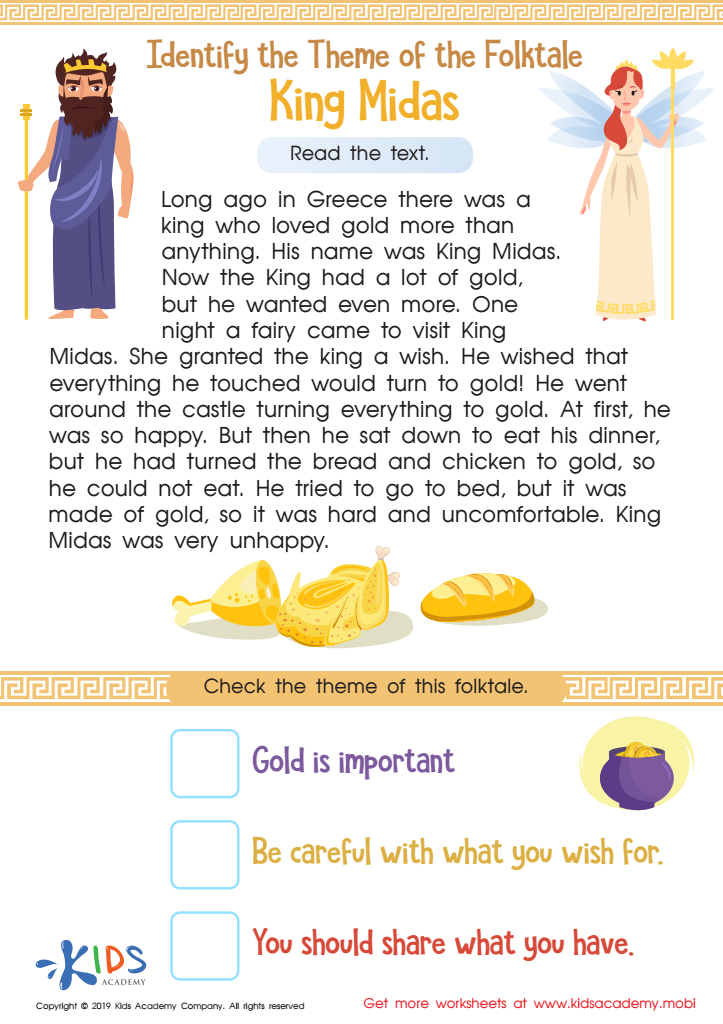

King Midas Worksheet
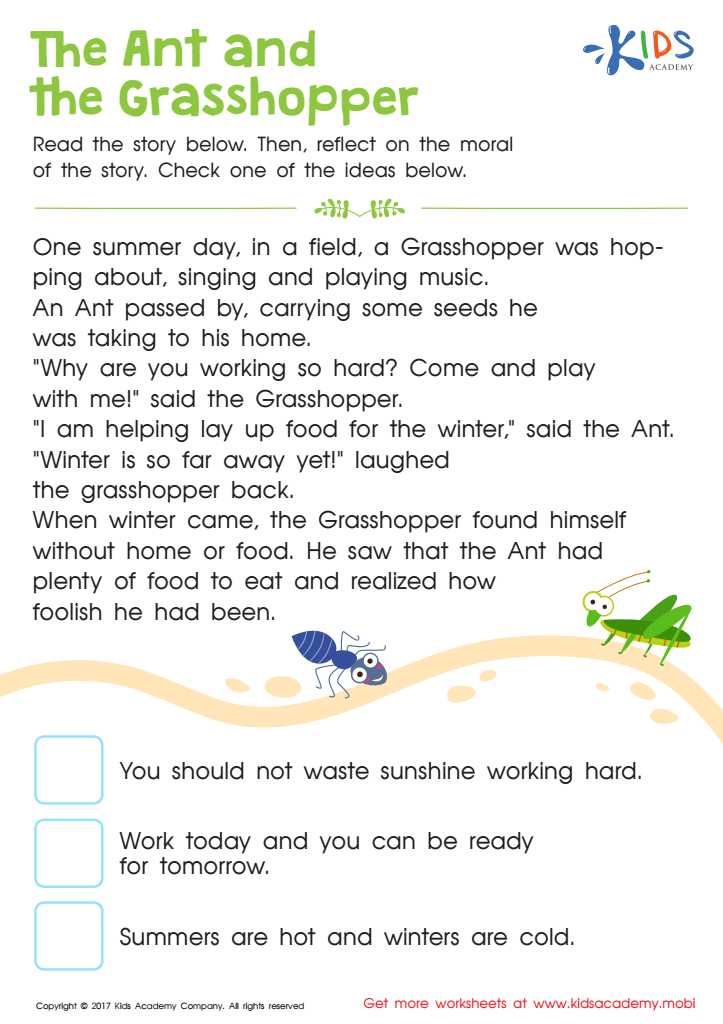

The Ant and The Grasshopper Printable
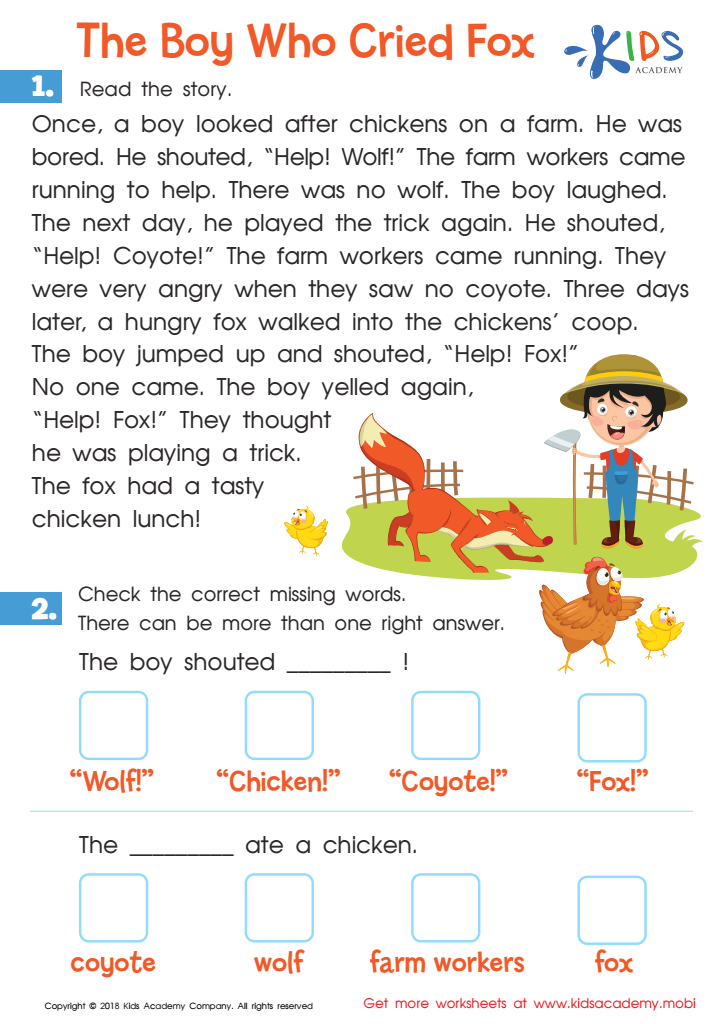

The Boy Who Cried Fox Worksheet
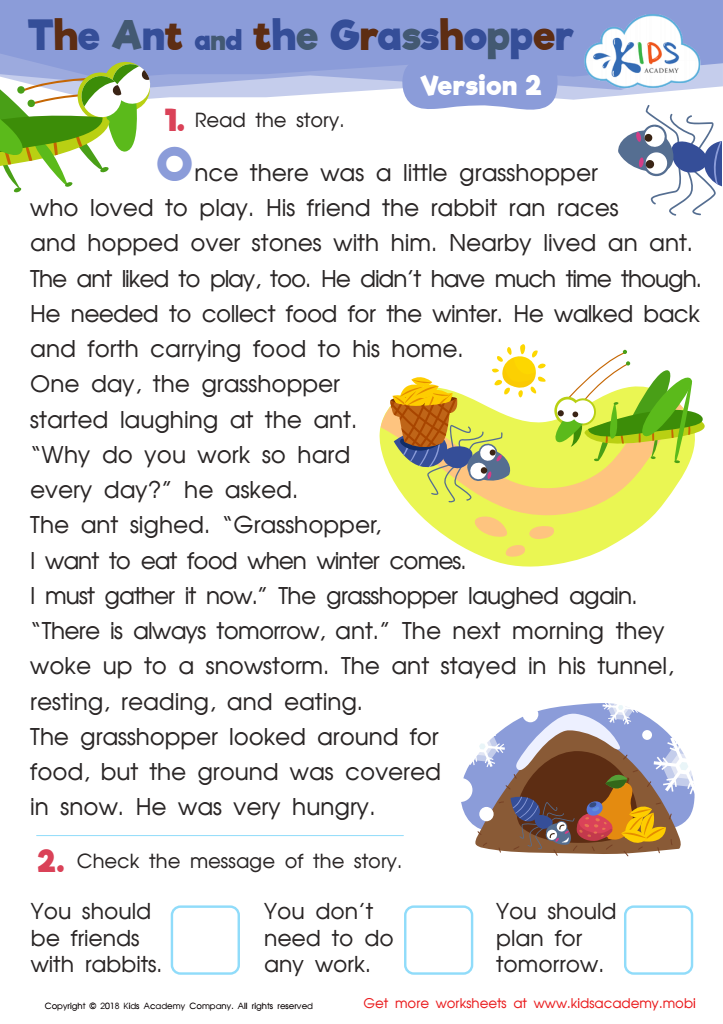

The Ant and The Grasshopper Version 2 Worksheet
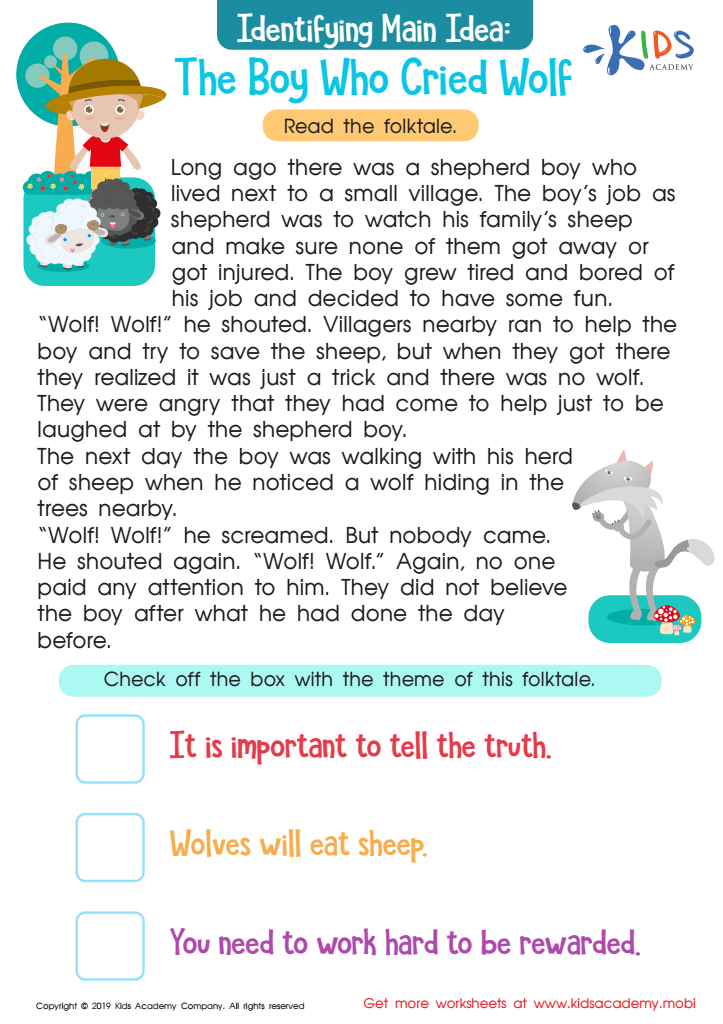

The Boy Who Cried Wolf Part 2 Worksheet
Parents and teachers should care about moral lesson understanding in normal reading comprehension for children ages 7-9 because this age group is highly impressionable and beginning to form values and beliefs. At this stage, children are not only developing fluency in reading but also critically interpreting texts. When stories convey moral lessons—such as honesty, empathy, and cooperation—they help children learn important life skills.
Integrating moral lessons within reading comprehension activities enhances social-emotional development. Children learn to reflect on characters' choices, consequences, and the moral implications tied to those actions. This fosters empathy, enabling them to relate to others’ feelings and experiences, which is crucial for building social skills.
Additionally, discussing moral themes encourages critical thinking and promotes dialogue about ethical issues, suggesting that consequences follow events in both fiction and real-life situations. This can help a child navigate complexities in interpersonal relationships and ethical dilemmas they may face.
By encouraging discussions around moral lessons in reading, parents and teachers can guide children in making informed, principled decisions as they grow. Ultimately, fostering an understanding of morality through reading lays a strong foundation for responsible citizenship and character development.
 Assign to My Students
Assign to My Students
















